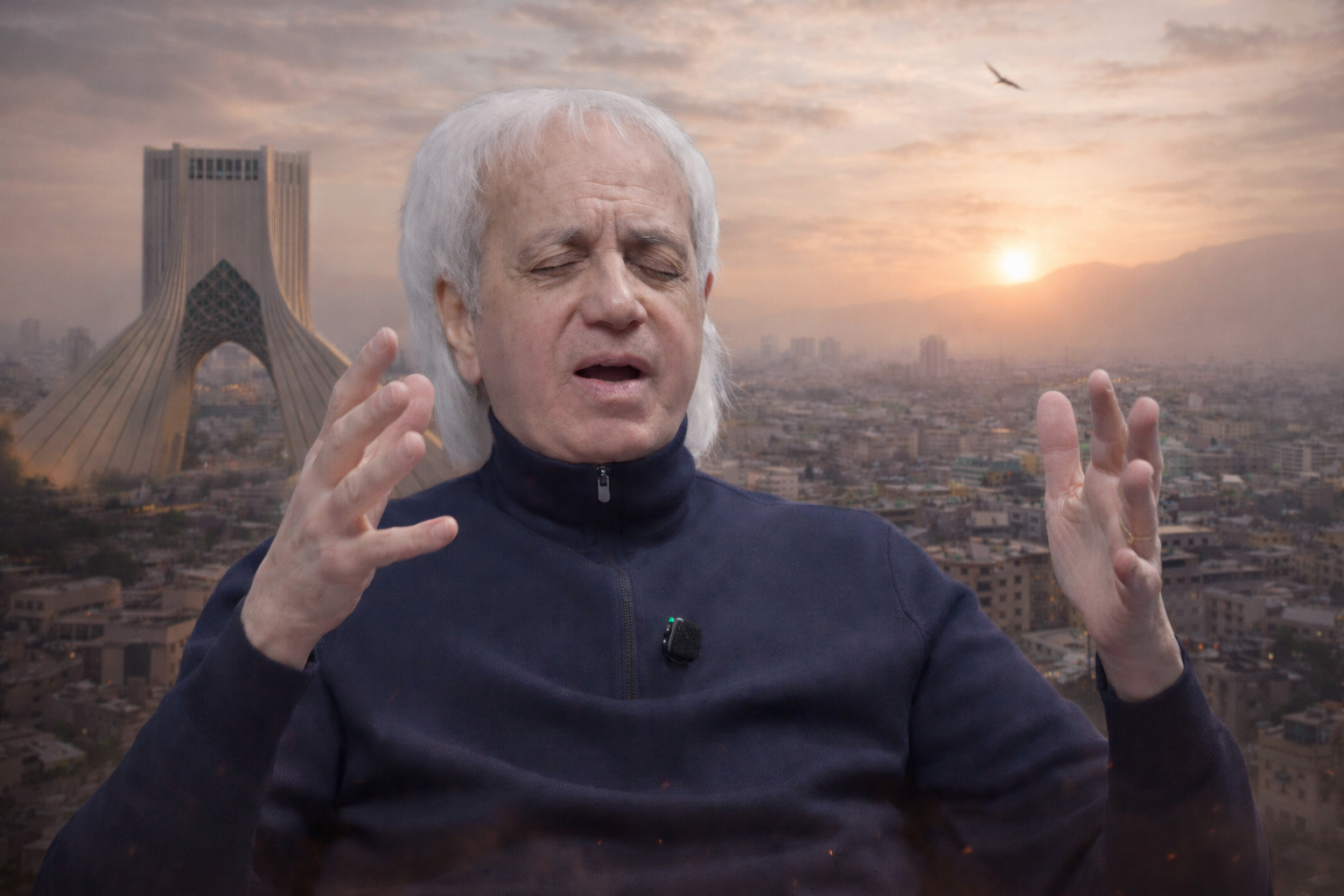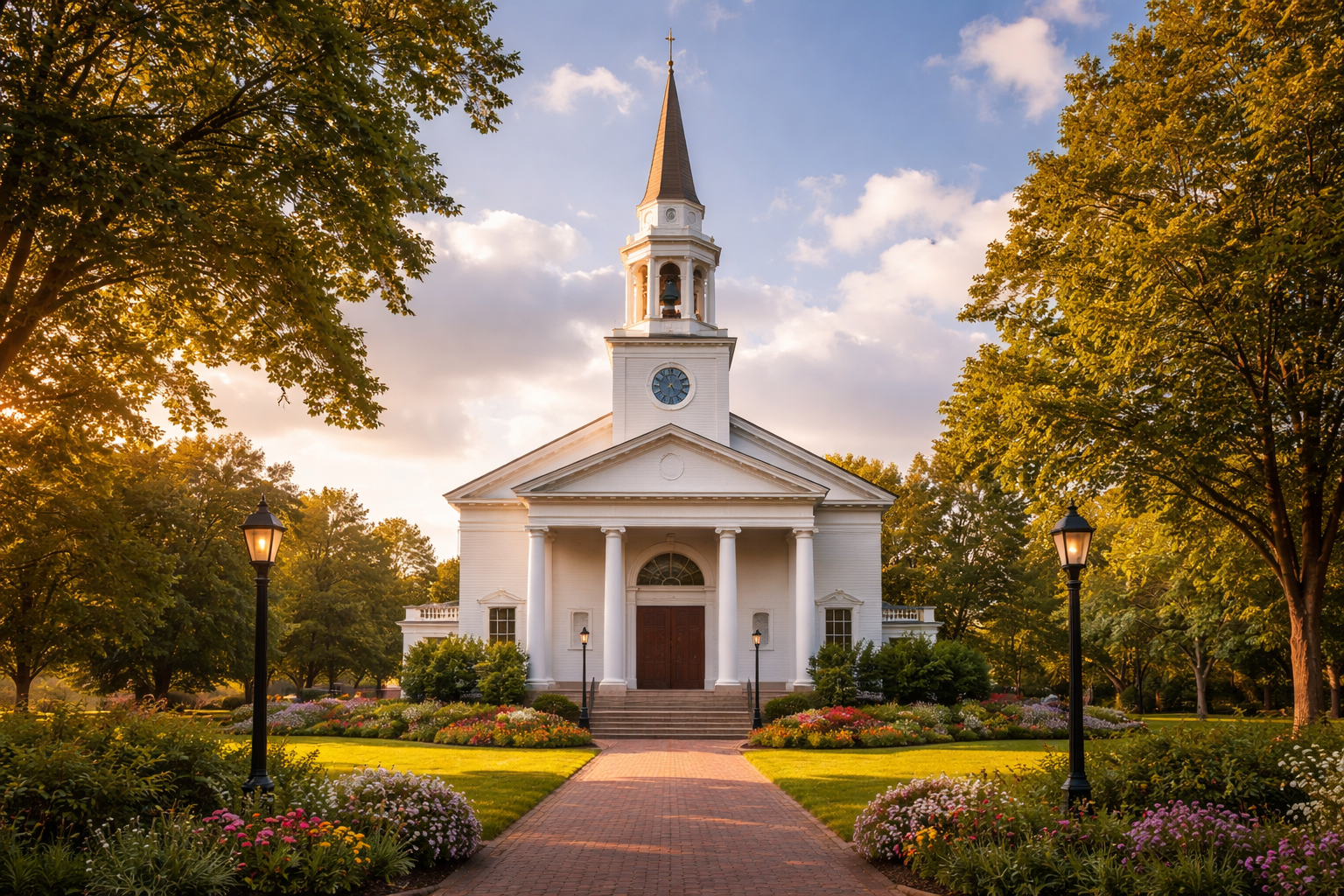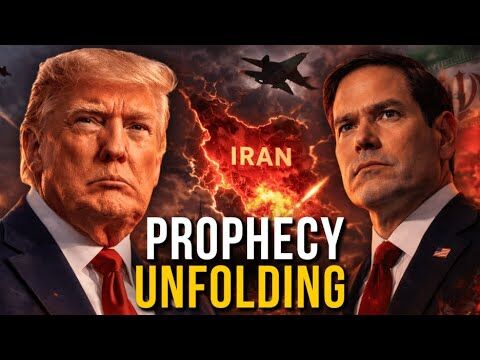Can you believe that crazy preacher on the other side of town thinks he’s an apostle? Imagine the absurdity!”
A ministry friend told me that the biggest problem in the body of Christ is self-proclaimed apostles and prophets. I didn’t expect him to be so dismissive. Yet, noticing some of the extremes in the church, I understood where he was coming from. Many have gone off the rails. Although the foolishness from modern-day apostles is unsettling, this is not a reason to dismiss this ministry role altogether.
There was an evangelist visiting small Midwestern prayer groups, claiming to be the catalyst for the “next great awakening.” Despite having only a handful of followers, he said he was an “apostle of the highest order.” I don’t want to ridicule anyone, but this was an outrageous claim.
More recently, I noticed an article about a preacher insisting he won the “International Spiritual Wrestling Championship”—defeating Satan in a “closed-door match.” This so-called apostle smiled as he clutched a massive title belt. Narcissism and bizarre displays can cause many to question whether apostles exist at all.
These kinds of antics infuriated my friend, and he came across a Bible passage to prove their ineligibility. In Acts 1:21-26, the earliest disciples replaced Judas Iscariot. According to their protocols, the replacement must be someone who walked with Jesus prior to the cross. My friend said, “That not only shuts down these fools, but anyone who claims to be a modern-day apostle.”
The excesses are out of hand and must be rejected, but I told my friend his stunted reading of Acts 1:21-26 didn’t mean what he thought. This passage provided the criteria for the Twelve Apostles who walked closest with Jesus—not all apostles. Other New Testament Scriptures reveal a much broader view of this ministry. Apostles are still a vital part of the Christian mission in the 21st century.
Apostolic Identity
The modern church doesn’t know what to think about apostles. A diligent search shows the Greek term for this role in early New Testament manuscripts is apostolos. It means “one commissioned” or “sent forth.” In ancient records, diplomats, admirals and royal envoys were called “apostles.” The word was used in some settings to designate a “warlike expedition sent out to sea to a distant contest.”
Nevertheless, when Jesus chose his “apostles” (Mark 3:14-15; Luke 6:13), He didn’t have Roman culture in mind. Much of what He spoke about was rooted in the first-century Jewish experience. During that era, Jerusalem authorities assigned men to collect money, share correspondence and protect synagogues from threats. They were curators and community builders. In Hebrew, they were called shaliach, but in Greek, these figures became known as “apostles.”
Although the Greek background of “apostle” shouldn’t be disregarded, the Jewish undertones deserve more consideration. I’m inclined to believe that the early Christian leaders were drawing from the idea of the shaliach when discussing apostles. Obviously, Jesus never wanted to appoint warlords.
I heard my friend say, “Apostles rule congregations and write Scripture.” I know most Christians have the same impression. Yet the Holy Spirit did not take most of these figures in this direction. Instead of governing and doctrinal formation, many of Jesus’ ambassadors focused on building culture and revitalizing the faith communities.
Ministering in pairs (Mark 6:7; Luke 10:1), the apostles established, empowered and protected the faithful (1 Cor. 4:19-21). They set things in order (Acts 11:19-26; 2 Cor. 10:8, 12:19) and focused on “strengthening the churches” (Acts 15:41b). They kept placing the glory of the gospel into a sustainable context.
Instead of being heavy-handed or burdensome, apostles worked to simplify—laying no additional yoke (Acts 15:6-11). They weren’t “severe” in their “use of … authority” (2 Cor. 13:10b, ESV). Acting like a father with his children (1 Thess. 2:11), they used their position for “building up and not for tearing down” (2 Cor. 13:10c).
My friend remained adamant about Scripture-writing as a key apostolic duty. I told him barely three out of the Twelve composed any part of the Bible, and their contributions represent less than 46% of the New Testament. Contrary to popular opinion, an apostle is not chiefly a scribe.
When discussing apostles, the spotlight also turns to signs, wonders and miracles. I recognize that this is a crucial part of New Testament Christianity. However, the charismatic gifts were not predominantly about securing a position or formulating doctrine. Instead, prophecy and the grace gifts provided “upbuilding and encouragement and consolation” (1 Cor. 14:3b). Individuals get caught up in the doctrinal (and sensationalistic) aspect of miracles, forgetting these mighty works often served the functional purpose of edifying people.
I also believe it is important to see that signs and wonders are a means of accomplishing the mission—not the mission itself. Paul declared, “The signs of a true apostle were performed among you … with signs and wonders and mighty works” (2 Cor. 12:12, emphasis added). The apostolic sign wasn’t the miracles but the curation of healthy, Christ-centered environments.
My friend couldn’t seem to understand the distinctions between an appointment to an office and fathers recalibrating culture. I told him he would have a tough time finding an apostle focused on institutional authority in the Bible. Instead, they were concerned with helping restore the divine image in the people of God.
Biblical Apostles
Many in the 21st-century church are still grappling with questions about apostles. I heard a man recently ask, “Who has the credentials and the right to be sent out by God?” This is an important question.
Although many don’t see the apostolic role extending beyond those who witnessed Jesus’ Resurrection, the New Testament shows several apostles who couldn’t check all the boxes in Acts 1:21-26.
Consider, for example, the 72 disciples released to go on a mission in Luke 10:9. The literal Greek rendering in this passage is that these men were “apostled” (Greek: apesteilen). As Jesus sent them out, they were to pray for the sick and announce the kingdom of God—just as the Twelve did.
Looking beyond the Gospels, the word “apostle” was used to characterize the ministry of Matthias (Acts 1:23-26), Paul (1 Cor. 9:1-2) and several others:
- Barnabas(Acts 14:4, 14; 1 Cor. 9:5-6)
- Andronicus (Rom. 16:7)
- Junia (Rom. 16:7)
- Apollos (1 Cor. 4:6-13)
- Titus (2 Cor. 8:23)
- James (Gal. 1:19)
- Epaphroditus (Phil. 2:25)
- Timothy (1 Thess. 1:1, 2:6)
- Silas (1 Thess. 1:1, 2:6)
The term “apostole” is applied broadly in the New Testament, and many evangelicals feel a little out of sorts about this. In some Bible translations, lesser-known figures such as Junia, Andronicus and Epaphroditus are called “messengers”—though the Greek manuscripts plainly refer to each as apostolos (See Acts 14:14; Rom. 16:7; Phil. 2:25; 2 Cor. 8:3).
I heard an academic argue, “Readers must differentiate between big ‘A’ and small ‘a’ apostles. One is governmental, and the other is merely a missionary.” If that were true, surely Scripture would have clarified such a vital distinction. Theologians argue about many things, but there are no textual variations here.
Moreover, if the gift of apostle did not extend beyond the earliest and most closely aligned disciples, why bother to correct “false apostles” (2 Cor. 11:13a) and “super-apostles” (2 Cor. 11:5b)? If Paul was the only one who could legitimately maintain this position, why drag anything out? Similarly, John the Revelator says he “tested those who called themselves apostles . . . and found them to be false” (Rev. 2:2). The fact that John used an evaluation process at all suggests more apostles would be coming.
Elsewhere in Scripture, we see the apostles will continue “until we all reach unity in the faith and in the knowledge of the Son of God and become mature, attaining to the whole measure of the fullness of Christ” (Eph. 4:13b, NIV). Thus the apostolic role will endure until the church comes into its “full stature” (Eph. 4:13b, NET), shortly before the Second Coming of Jesus.
Modern-Day Apostles
I told my friend no one should take anything away from the Twelve. Peter and the earliest disciples were the nucleus—the gold standard for everything. Nevertheless, they were also only one part of a much wider range of ministry. When Paul mentions “all the apostles” (1 Cor. 15:7b), we get the sense that the apostolic team was sizable. Modern-day believers need a vision that is just as big.
I explained to my friend that while he went too far with his remarks, he had some valid points about the pride and shameless self-promotion. Some things taking place in the body of Christ are detestable.
Legitimate apostles are never self-appointed; they are activated “by the will of God” (2 Cor. 1:1b). One is “an apostle—not … through man, but through Jesus Christ” (Gal. 1:1b, MEV). This is not a fast track to fame, but a summons to go lower. Paul made this plain when he said apostles were least in the body of Christ—a “spectacle,” mere “fools for Christ’s sake” (1 Cor. 4:9b-10a, ESV).
People assume apostles are admired and loved, but often the opposite is true. They often face persecution, disrepute and slander. Some critics consider them the “world’s garbage, like the dirt everyone scrapes off their sandals” (1 Cor. 4:13b, HCSB).
If all of that is not disturbing enough, Paul suggests genuine apostles “share abundantly in Christ’s sufferings” (2 Cor. 1:5a, ESV). Many of the men and women sent out by the Lord are persecuted, and some will suffer martyrdom. One who is not willing to die for the gospel clearly isn’t an apostle.
Paul pulls back the curtain on the apostleship, and he flips the script. When he says, “God has appointed in the church first apostles” (1 Cor. 12:28a), he isn’t saying this position is first in importance; he is saying it is the first to break ground.
In another Bible passage, we see that “the household of God” is being “built on the foundation of the apostles” (Eph. 2:19b-20a). Instead of identifying this with the pinnacle of the pyramid, Paul is stressing what’s underneath. Apostles are foundation builders. They’re like the rebar and concrete that enable other magnificent things to be constructed.
A building’s foundation is vital. Without suitably curated concrete and beams, an edifice will topple. What happens on the ground determines a structure’s strength and span. Foundations aren’t what capture the spotlight. Most who admire architecture are interested in movement and form. They pay attention to doors, windows and facades. The architects always hide the underpinnings of the building under the more striking features.
We must recognize that apostles are the floor rather than the ceiling. They provide the foundations we build on rather than the capstone we build under. Most of the time, apostles set the stage rather than occupy it. Instead of being preoccupied with themselves, they are obsessed with spiritual environments, biblical culture and the well-being of the people they serve.
I’m all for operating in signs and wonders. Yet, the most distinguishing mark of an apostle is fruit-bearing. When Paul’s adversaries demanded his credentials, they expected miraculous displays or clever wordplay. Instead, the Corinthian believers were his “letter of recommendation” (2 Cor. 3:2-3). Paul didn’t emphasize knowledge, power or authority; instead, he highlighted his ability to produce something sustainable in others.
As my friend and I lingered in our dialogue, I told him he was disregarding the leaders God is elevating in this era. Most world-changers aren’t writing books or talking about their exploits online. They are spiritual mothers and fathers who are modeling, guiding and establishing things.
Heidi Baker is a missionary who established an outpost in Mozambique alongside her husband, Rolland. Over the last 25 years, the Bakers’ teams have helped launch 10,000 churches, fed thousands of orphans and led 1 million people to Jesus. Before meeting Heidi, I didn’t know what to expect. Although I’ve been around several leaders who could dominate a room, she wasn’t like any of them. This godly woman was devoid of anything but Jesus. Her selfless compassion and love for the Lord overwhelmed me.
I also met a Chinese underground church leader a few years back. He took a Bible course I taught. While in my class, he honored me at every turn. I later discovered he oversaw congregations and equipped leaders in his communist nation. I taught him, but he was the one who should have been teaching me.
Thinking about world-changers brings another man to mind: Haik Hovsepian Mehr (1945-1994), the former general superintendent of the Assemblies of God in Iran. He formed a network of fellowships in this violent Islamic state. While I was working at the Assemblies of God denominational bookstore in 1995, I met his brother Edvard. With tears in his eyes, he spoke to me about Haik’s recent martyrdom. This Iranian preacher was willing to die to bring the message of Jesus to his enemies. A genuine apostle is always willing to pay the ultimate price.
Dangerous Extremes
I reiterated to my friend that I didn’t have much of a stomach for sensationalistic storytelling and the foolishness that flies under the banner of the apostle. Nevertheless, what troubles me more is how religious skeptics elevate their suspicions above the Bible. Apostles still exist, but many are blind to their contributions because “human traditions” (Mark 7:8b, NIV) are allowed to override the plain teaching of Scripture.
Many Christians are so desperate to bypass what’s wrong that they lean too far the other way. They end up overlooking vital aspects of what God is doing. During an outpouring of the Holy Spirit, the great revivalist John Wesley (1703-1791) said there was a danger in regarding the extraordinary works “too much.” But then he acknowledged that the greater danger was “to regard them too little; to condemn them altogether.” In many ways, I think that is where we are now.
In my conversation with my friend, I noticed he had become silent. I had picked up a phone call and other obligations arose, so we had to cut our talk short. Two days later, I was surprised when I received an email from him stating: “I’m not sure I’m willing to go as far as you in accommodating modern apostles, but you’ve given me plenty to think about.”
No one has all the answers, but if believers could get away from the stifling religion, politics and the narcissistic celebrity culture, we might find something marvelous in our midst. In this challenging era, the church needs a fresh infusion of grace. May the Lord help us rediscover the inexplicable beauty of mothers and fathers. Now more than ever, the church needs apostles.
J. D. King is an author, speaker and independent researcher. He was a supporting leader in the Smithton Outpouring in the 1990s and presently serves as a pastor at Revive Church in Kansas City, Missouri. King is the author of Regeneration: A Complete History of Healing in the Christian Church and other nonfiction works. You can find him online at jdking.net.












































